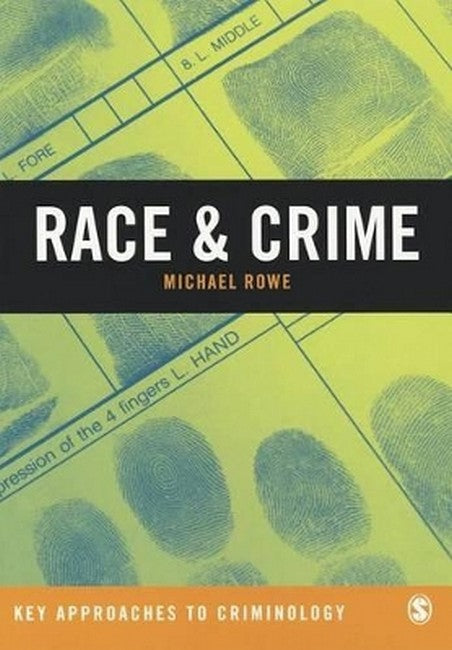Professor Michael Rowe's research interests have tended to focus on accountability and governance in policing, and the changing organisation and delivery of policing in relation to diversity, professionalisation, the application of Evidence Based Policing and the challenges of policing in a digital age. A recent project has explored the changing nature of visible policing in relation to the impact of police buildings, material culture and social media on public perceptions of legitimacy and authority, as well as on police officer and staff professional culture and identity. Other projects have examined innovative police responses to domestic violence, organisational and cultural change in the policing of adult sexual assault investigations and the ethical and governance challenges of using scientific research and AI technology in contemporary policing. He is currently developing work exploring the policing of Anthropocentric climate change. He has published widely on these and related matters in the British Journal of Criminology, Policing and Society, Public Management Review, the Journal of Contemporary Ethnography, Criminology and Criminal Justice and many other journals. His books include Policing the Police (Policy Press, 2020) and Accountability in Policing: Contemporary Debates (Routledge, 2015, edited with Stuart Lister) and Introduction to Policing (Sage, 2018, third edition). He is editor of the International Journal of Police Science and Management.
Request Academic Copy
Please copy the ISBN for submitting review copy form
Description
'Race', 'Crime' and Society Introduction The Social Construction of 'Race' The Social Construction of 'Crime' Race and Crime: A Critical Engagement Structure of the Book Summary Study Questions Further Reading Race, Crime and the Criminological Imagination Introduction Race and the Development of Classical Criminology Criminology as Science: Race and the Emergence of the Positivist School Race, Ethnicity and Sociological Positivism 'Empiricism' to 'Social Constructionism' Summary Study Questions Further Reading Race, Crime and Popular Culture Introduction Race and Crime in News Media Infotainment Screen Fiction Digital Media Summary Study Questions Further Reading Disproportionality in Offending Introduction Statistical Evidence of Disproportionality Other Evidence of Disproportionality Guns, Gangs and Street Crime: Mugging and Onwards Race and Crime: A Critical Realist Perspective Summary Study Questions Further Reading Race and Victimization Introduction Minority Ethnic Groups and Criminal Victimization Racist Hate Crime: Victims and Perpetrators Responding to Racist Crime Summary Study Questions Further Reading Race, Conflict and Human Rights Introduction Human Rights Abuse and the Failure of Criminology Towards a Criminology of Genocide Criminology, Environmental Harm and Neo-Colonialism Summary Study Questions Further Reading Disproportionality in the Criminal Justice System Introduction Minority Ethnic Groups in the Criminal Justice System of England and Wales International Comparisons Explaining the Over-Representation of Minorities in Criminal Justice Systems Summary Study Questions Further Reading Diversity and Representation in the Criminal Justice System Introduction Recruitment, Retention and Promotion Enhancing Diversity within the Criminal Justice System Promoting the Diversity Agenda Workforce Diversity: Necessary but Insufficient Conditions for Reform Summary Study Questions Further Reading Islam, Terrorism and Security Introduction: Terrorism and Security into the 21st Century Muslims as 'Suspect Communities' Summary Study Questions Further Reading Race and Crime: A Critical Engagement Introduction Ethnic Monitoring in Criminal Justice Summary Study Questions Further Reading
In this wide-ranging and ambitious book, Michael Rowe has managed the difficult feat of being both scholarly and accessible. He provides a critical and thought-provoking analysis of criminology's long-standing and problematic relationship to questions of race and ethnicity, and, drawing on a range of resources from the local to the global, argues convincingly that criminology should attend more closely to the harms to minority groups that result from the crimes of the powerful David Smith Lancaster University In this book, Mike Rowe presents material in relation to the broad area of race and crime in new and refreshing ways. Debates traditionally featured under 'race and crime' are given a contemporary twist, providing students, researchers, practitioners and others with challenging new insights. The material is clearly presented and very engaging Basia Spalek The University of Birmingham Rowe calls for an exploration of the processes of racialization, with a particular focus on how the concepts of race and crime, in various contexts, circumstances and times, have developed, been utilized and applied to make sense of the social world. For Rowe, the concepts of race and crime have real implications as both 'are real in their consequences'...This book provides a constructive way forward for the study of race and crime. -- Anita Kalunta-Crumpton In a short review, I cannot do justice to the treasury of such nuggets supporting subtle arguments in these 300 pages - well charted in every sense. But if you have ever wondered about what happens when business meets academia but never dared to find out yourself, this would be a great place to start. -- Diana Hunter

